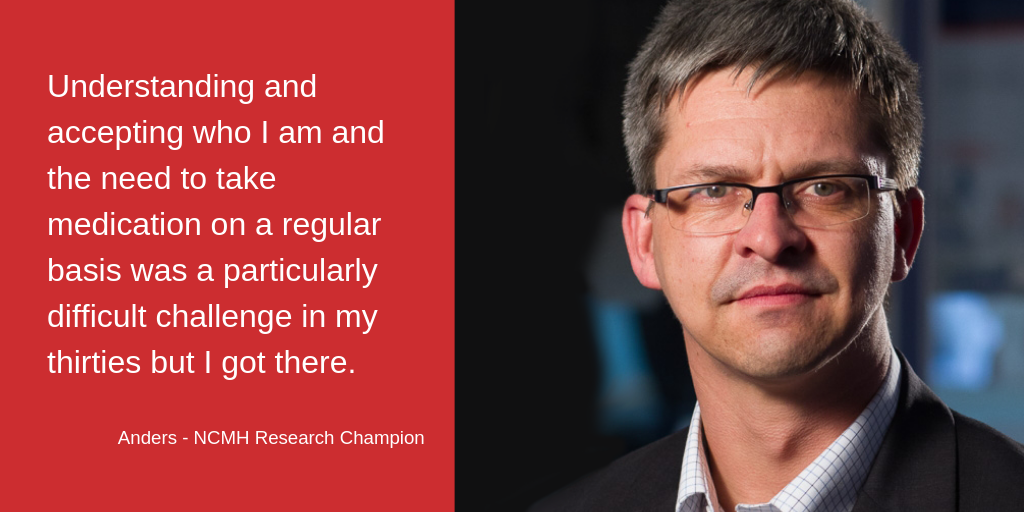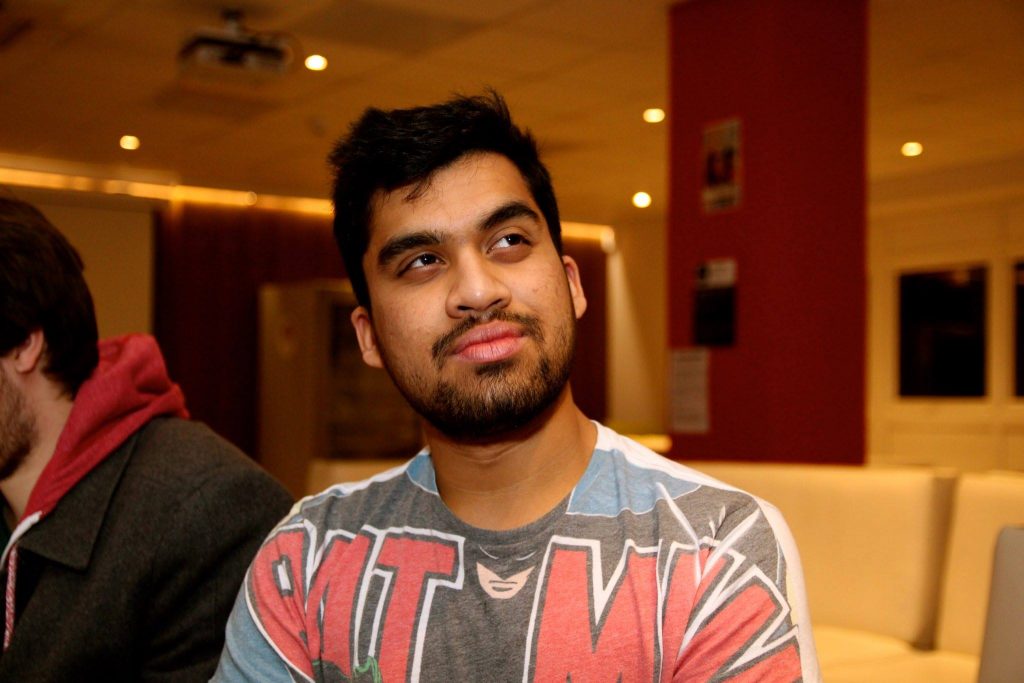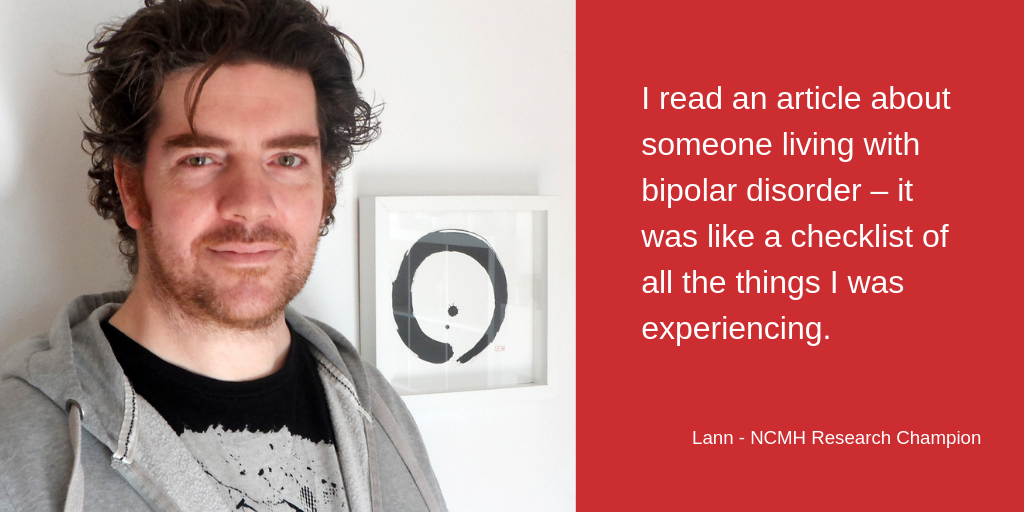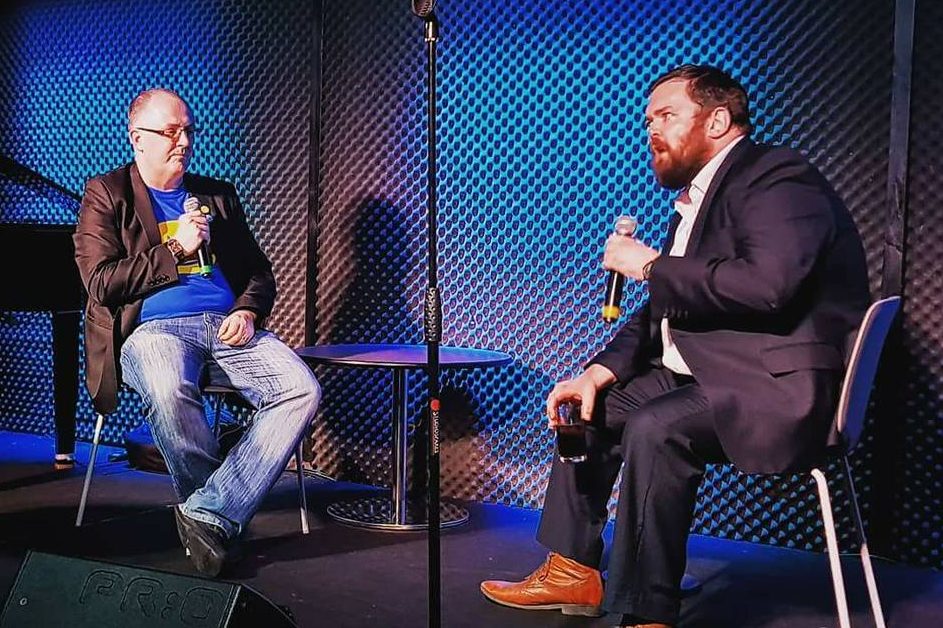Posted June 10th 2019
They’ve created the Man MOT that has narrowed down 7 numbers that all men need to know.
Key numbers for men:
- 37 – a waist size of 37 inches or above puts you at increased of heart disease, diabetes and cancer. Learn more.
- 150 – men should aim for 150 minutes of moderate physical activity a week. Learn more.
- 5 – we should aim to eat 5 portions of fruit and veg a day. Learn more.
- 14 – maximum 14 units of alcohol a week. Learn more.
- 10 – cigarette smokers die 10 years younger on average than non-smokers. Learn more.
- 120/80 – normal blood pressure. Learn more.
- 75 – 75% of suicides (3 out of 4) are by men. Learn more
We reached out to some of our NCMH Research Champions who have been keen to share their experiences in hope of reducing the stigma around mental health problems and encouraging other men to speak out and ask for help when they need it.
Anders

Anders is a father of two and works in the nuclear industry. He was keen to help raise awareness of our research having been involved in previous studies after being diagnosed with depression and bipolar disorder while at university.
I first became aware of depression related issues in my early twenties while at university. I had some particularly bad depressive episodes in my early career and, when I was about 25, I had my first major bipolar experience.
The last 20 years has been a journey of good and bad experiences, of learning about myself and putting in place safety nets that enable me to get back to good health as rapidly as possible when I experience problems.
Understanding and accepting who I am and the need to take medication on a regular basis was a particularly difficult challenge in my thirties but I got there.
I developed ways of coping with the depression as well as systems to help me cope with day to day life. I attended a course specially designed for men called “It’s a Goal” which amongst other content, introduced ‘goal-setting’ as an approach to improve my Bipolar-disorder life.
Read more about Anders’ experiences in his blog: The highest highs and the lowest lows
Munzir

Munzir was a medical student at Cardiff University when he decided to take time out from his course after being diagnosed with OCD.
Since the age of 19, I’ve been suffering from anxiety. A few years ago I started having violent thoughts and compulsions as if I wanted to carry them out. I’ve since been diagnosed with OCD and have developed eating problems and sexual compulsions too.
Outside of my course, my main hobby is film making. Below is the documentary I made with the NCMH in 2016, How are you?. While I was already very happy with how the film turned out it has now gained a greater significance to me.
A few months after making the film, I was diagnosed with OCD and then understood, first-hand, the stigma of mental health. I began to truly understand what the participants spoke of in the documentary.
My hope is that the documentary is seen by many people and that it changes people’s opinions about mental health. Even if it only changes one person’s mind, even if it only helps one person, I will be happy with what we have achieved.
Lann
Lann is a father of two and runs his own business selling calligraphy-based artwork.
I lost my job working in sales, triggering problems with my mental health. I wasn’t myself for some time before I was made redundant. I’d be stressed and angry a lot of the time, but I thought this was just what people who work in sales felt like, that is was normal. But when I lost my job, everything just started to crumble.
One day I parked in a lay-by up on the mountain, switched off my phone and just sat there and cried for hours. And then I did it again the next day. I knew something was wrong and decided it was time to speak to my GP.
This wasn’t easy for me; I grew up in a rural area in West Cork, and attitudes to mental health were very old fashioned when I was a kid. It wasn’t something you talked about or admitted – it was seen as a weakness or something you were putting on. I had to go through it myself to understand what it was really like, and just how much it can affect your life.

My doctor began treating me for depression, but I was also experiencing unusually high moods which were just as destructive. I read an article about someone suffering from bipolar – it was like a checklist of all the things I was experiencing.
Eventually, with the help of my psychiatrist and my loved ones, I was able to stabilise my moods and stay well. I found that medication helped. It took a long time to find what worked for me, but when we finally got it right, it just felt like someone turning the lights back on. I felt like me again.
Wes

Wes, pictured above right, is a stand-up comedian based in the South Wales Valleys.
It was while working full-time in software development and travelling the UK performing stand-up that I had my first breakdown.
I’d worked to the point of exhaustion and found myself – after being destroyed by a heckler and walking off-stage at a gig in Coventry – parked on the hard shoulder of the M5, unable to drive through the tears.
I pressed on, believing that I could ‘walk it off’, that I’d be fine after a couple of weeks break.
In 2012, after losing yet another job, I finally decided to get help. I went to see my GP and was diagnosed with depression and anxiety. I was given medication and have been taking anti-depressants, on-and-off, ever since.
In 2016, after a divorce and redundancy, and having lost a number of jobs, I decided to make stand-up my full-time career and to ‘come clean’ about my condition.
After performing at a friend’s book launch in 2017, I was approached by BBC Wales to film a short piece for them about my experiences of depression and anxiety. This included the opportunity to speak with Professor Ian Jones, Director of NCMH.
After speaking with Prof. Jones, learning about the great research work being done at the centre, and meeting some of the incredible team that makes it all happen I was thrilled to accept when asked to take part in that research and to become a Research Champion.
The work that NCMH is doing is vital. I would encourage everyone who is able to take part. I’m hoping that their research will help shed more light on this subject, bring more clarity, help dispell stigma and provide evidence to inform future education and policy making.
https://www.facebook.com/BBCRadio4/videos/482300288936581/
Resources
- Men’s Health Week 2019 – Man MOT
- Men’s Health Forum – Mental Health
- Mental Health Foundation – Men and mental health
Sign up now and receive new blog posts to your inbox.
